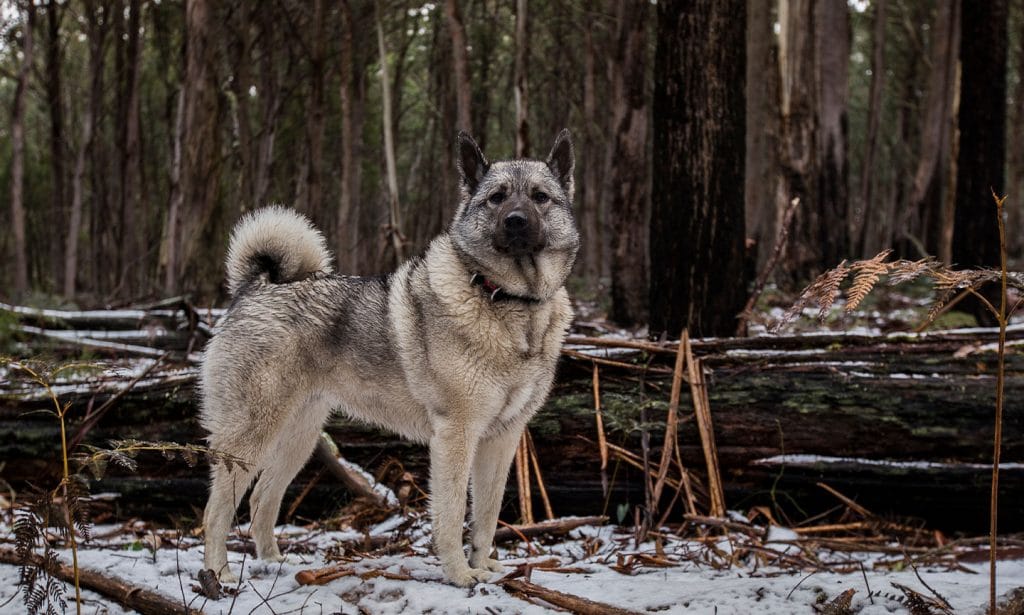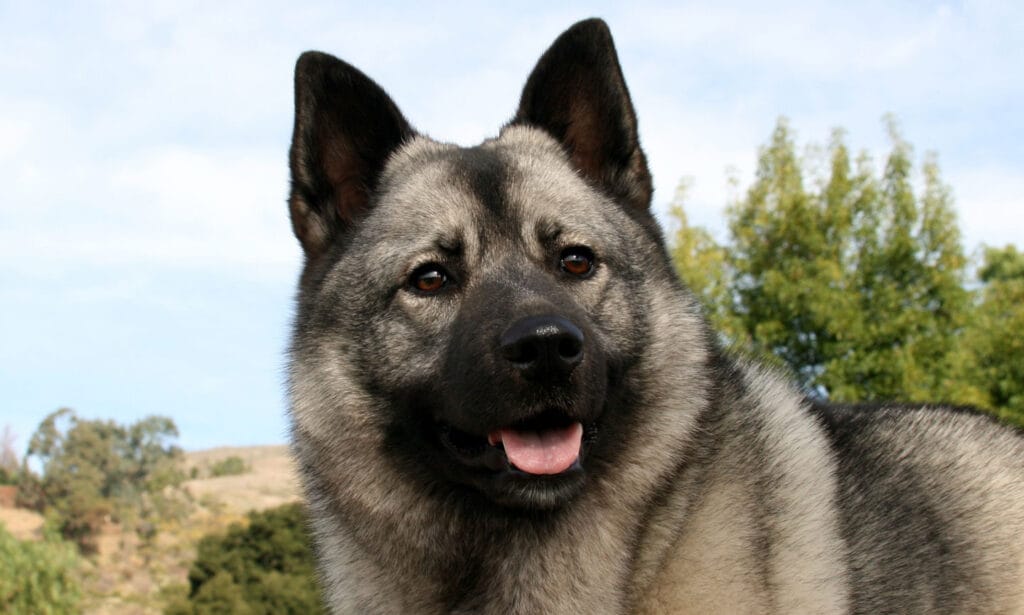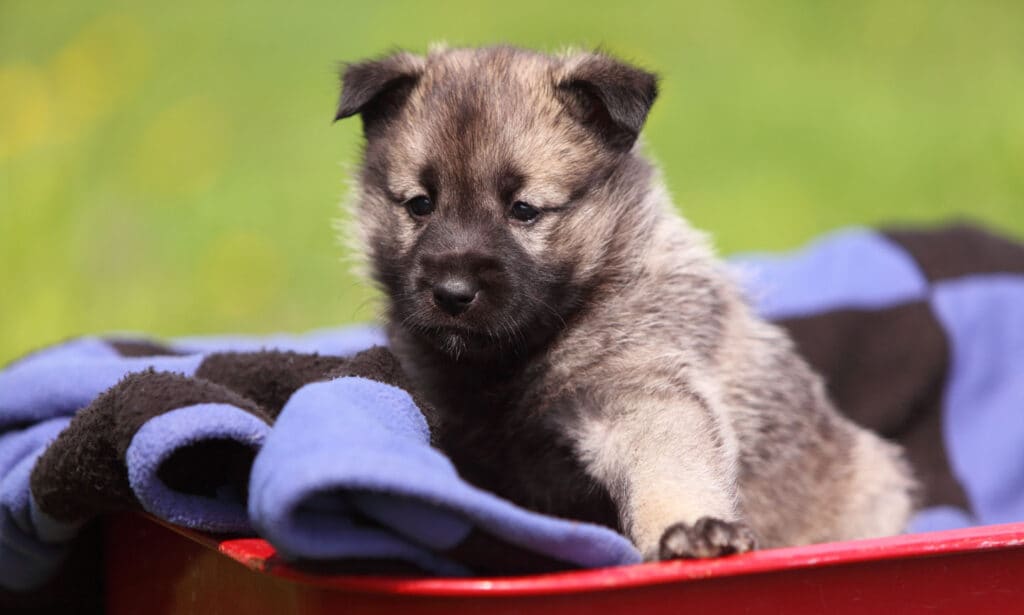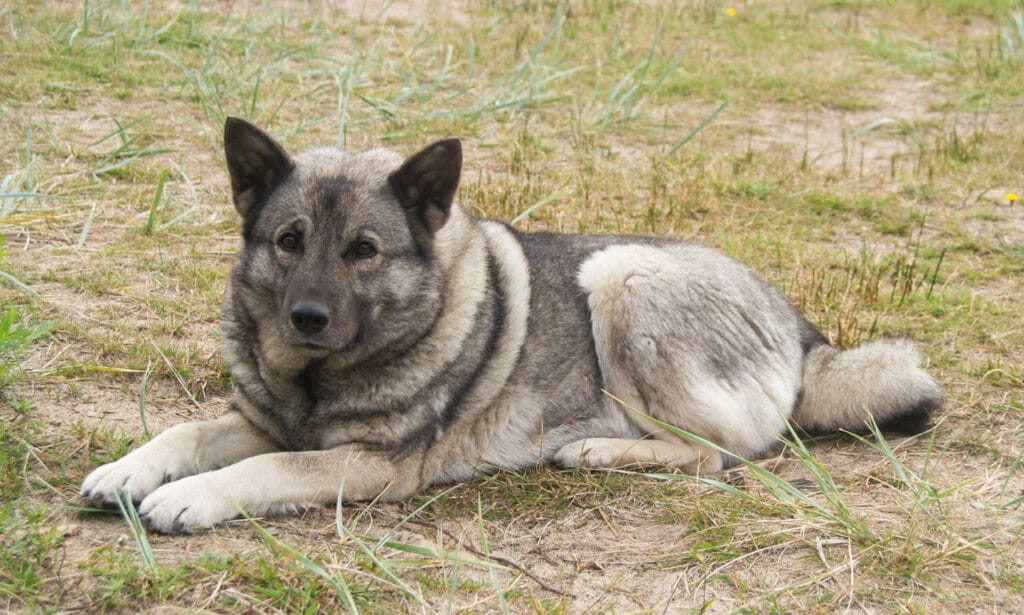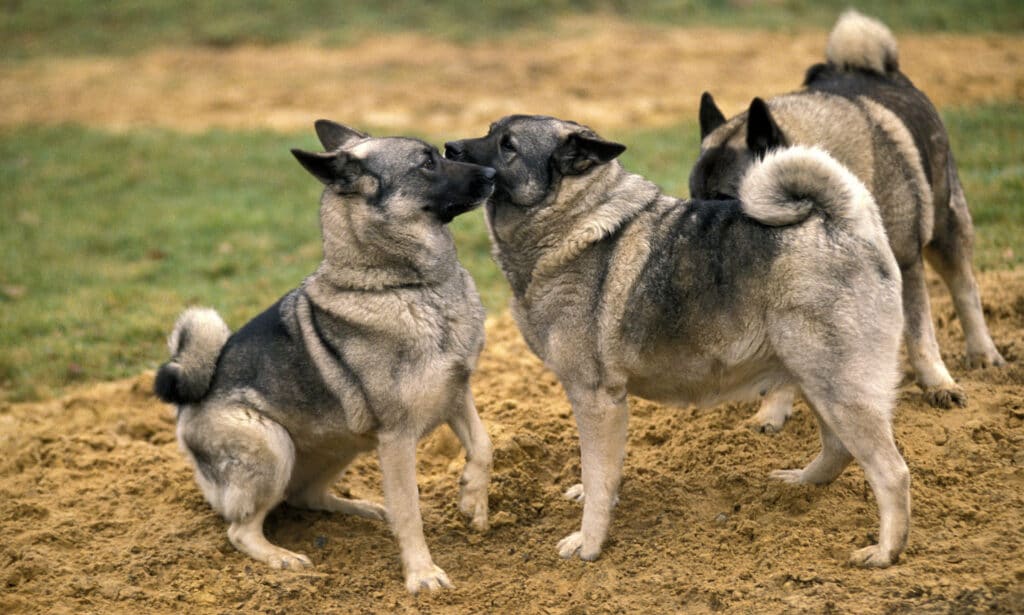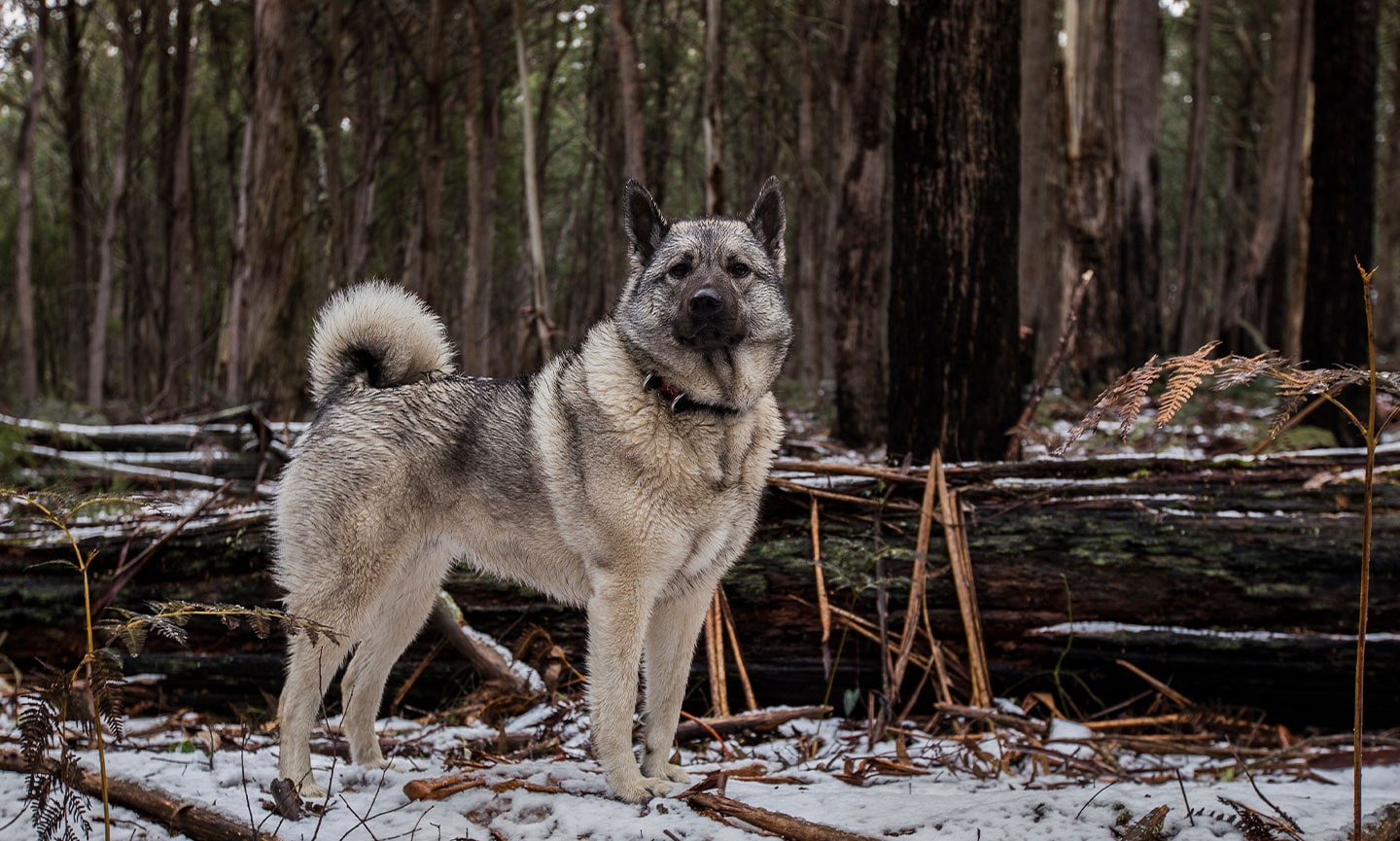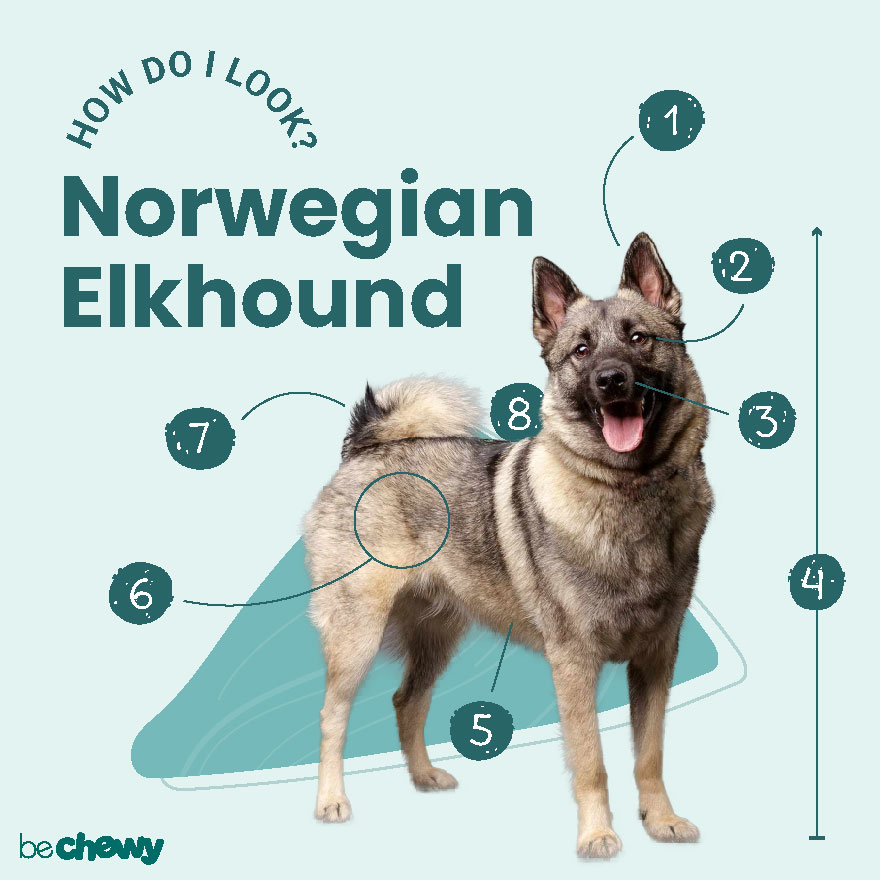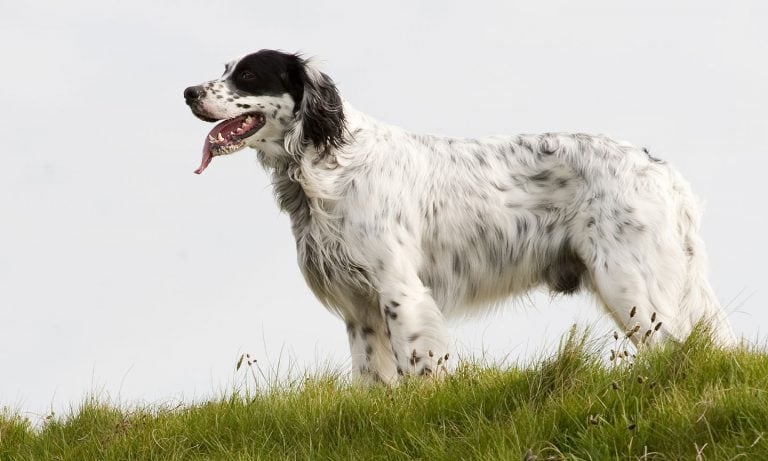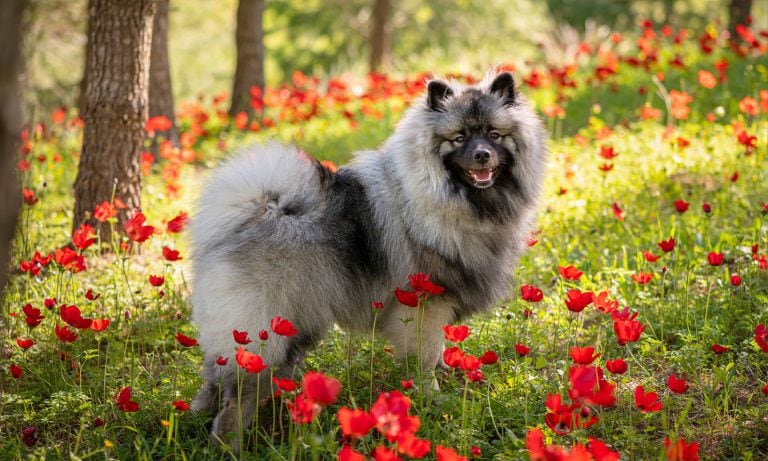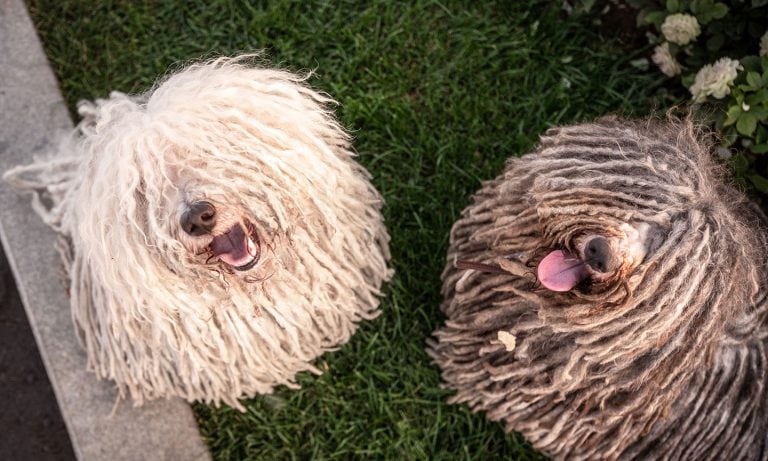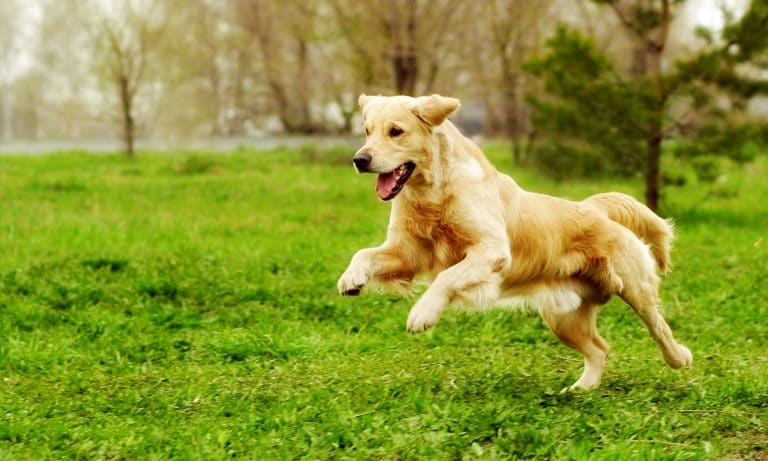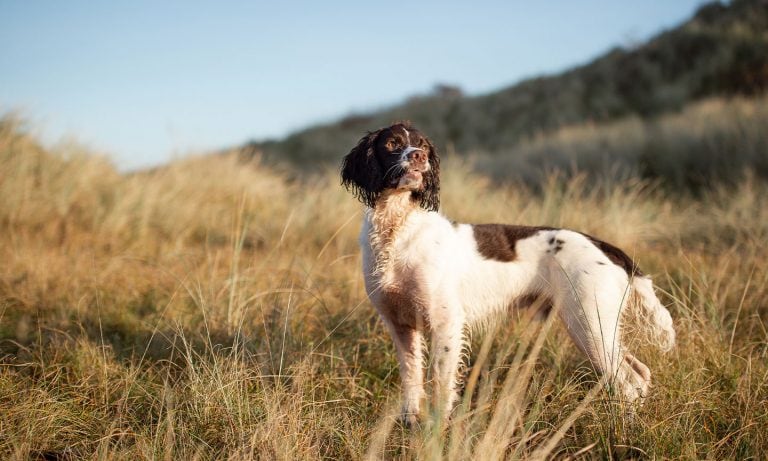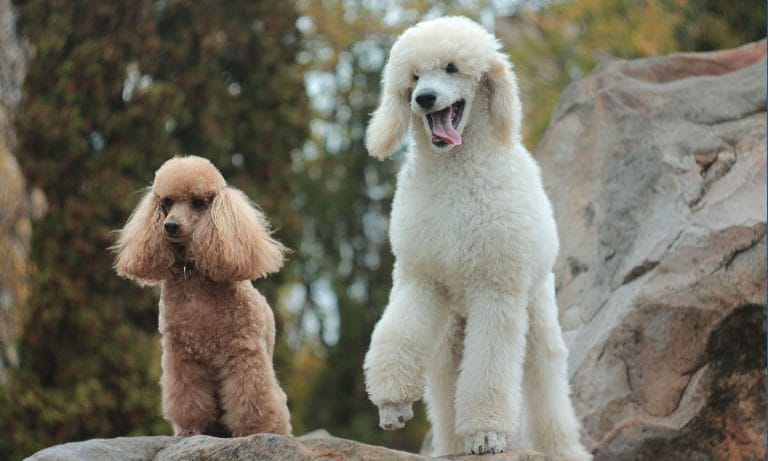If your Saturday plans often involve serious outdoor adventuring, a Norwegian Elkhound may be the canine companion you’re looking for. These silver-gray dogs hail from—you guessed it—Norway and are born athletes, always ready to tackle a day of outdoor adventure with you. Norway’s national dog is a fierce, loyal, intelligent and ancient breed that requires lots of physical and mental stimulation. Daily exercise, training and possibly dog sports will be in your future, so feel free to cancel your Netflix subscription (and invest in a good vacuum) before you welcome your newest family member.
Breed Snapshot
Temperament:
LoyalVersatileIntelligentCoat Color:
Gray Black & SilverSilver Gray & BlackGray & BlackSilver & BlackBlack White & SilverBlack & GrayBlack & Silver
Best For
The Norwegian Elkhound is an ancient breed known for their loyalty, intelligence and silver-gray coat. These athletes crave lots of physical and mental stimulation and are great for experienced dog parents ready for lots of outdoor adventures.
Norwegian Elkhound Temperament
A Norwegian Elkhound’s temperament is active and intelligent, strong-willed and devoted. These qualities make them a great family dog for an on-the-go crew who’s up to the challenge.
A typical Norwegian Elkhound is loyal and friendly, although they aren’t quite as outgoing as a Labrador or Golden Retriever. They may take time to warm up to strangers, though they will generally come around. They aren’t aloof like some breeds but don’t always seek a new BFF. Their loyalty is to their pet parent first and foremost. Norwegian Elkhounds can cohabitate with other dogs, although it’s best to introduce them to other dogs when they’re young.
Elkhounds are historically hunting dogs, eager to track, chase and keep large animals at bay, so they tend to be quite vocal and won’t hesitate to sound the bark alarm if they want to tell you something Very Important, like that a stranger’s approaching or you’re 10 minutes late with their dinner.
How to Care for a Norwegian Elkhound
Norwegian Elkhounds require commitment. Their high energy demands a high activity level, and they must be well-trained or they may try to lead you. On top of that, daily brushing is a must for this double-coated breed, and they will shed their undercoat twice a year, sending your vacuum cleaner into overdrive.
Norwegian Elkhound Health
Norwegian Elkhounds’ life expectancy is 12 to 15 years. They are a generally sound breed with few health problems. But there are a few health issues to be aware of. Here are some of the other health issues you should be mindful of.
- Hip Dysplasia: A common problem in large breeds and older dogs, hip dysplasia occurs in some Elkhounds. Hip dysplasia is a condition in which the hip joint isn’t formed properly and rubs, causing the dog pain. Symptoms include lameness in the back legs, decreased activity and “bunny hopping.” Treatment options include physical therapy, joint supplements, medications and potentially surgery.
- Genetic Eye Conditions: Several genetic eye conditions that lead to blindness occur in the breed, including progressive retinal atrophy (PRA), glaucoma and cataracts. If your pup has any issues with their eyes (redness, cloudiness, squinting, bulging, running into things, pain), please see your veterinarian right away.
- Renal (Kidney) Disease: Norwegian Elkhounds may experience kidney problems, including Fanconi syndrome. Symptoms include excessive urination and thirst, as well as weight loss. There’s no cure for kidney disease, but there are treatment options, including a prescription diet, medications and ensuring your dog always has access to plenty of fresh water.
Norwegian Elkhound History
The so-called “Dog of the Vikings,” the Norwegian Elkhound has an origin that dates back further than even the Vikings themselves. What’s believed to be skeletons and depictions of Elkhound-like dogs have been found among human remains at Stone Age archeological sites in Norway. They hunted with their Viking companions, who bred these fearless hounds for trailing and cornering big game like moose, reindeer and bears. They’ve also served as guardians and watchdogs, barking incessantly at threats that came their family’s way. Their strong noses and barking abilities persist in the breed today.
Norwegian Elkhounds became show dogs in their native country in the late 1800s. The American Kennel Club officially recognized the breed in 1913. In 1931, the Norwegian Elkhound Association of America gifted an Elkhound puppy, named Weegie, to President Herbert Hoover after his German Shepherd died. At the time, there were only a couple dozen Elkhounds in the US, although they were more common in Europe. Today, they rank 97th out of 197 in AKC breed popularity.
Where can you find a puppy today if you are considering raising a Norwegian Elkhound? The AKC Marketplace lists puppies available from AKC-registered breeders. How much does a Norwegian Elkhound puppy cost? The price for a puppy from a reputable breeder ranges from around $1,000 to $2,000. But for that price, you’re likely getting a pup who’s been screened for health and temperament issues and may come with pedigree papers. If you’re interested in adopting a member of this breed, several rescue organizations also specialize in Norwegian Elkhounds. You can also keep an eye out at your local animal shelters or search Chewy’s database of adoptable dogs in your area.
FAQs
How do you pronounce Elkhound?
Elkhound is pronounced elk-haund. The name comes from the original Norwegian name, Norsk Elghund. Elg means “moose,” and hund means “dog.”
Do Norwegian Elkhounds shed?
Yes, Norwegian Elkhounds shed—be prepared to vacuum a lot. Their thick, double coat requires daily brushing to keep it in shape, but when they blow their coats in the spring and fall, be prepared for the fur to fly.
How long do Norwegian Elkhounds live?
Norwegian Elkhounds live about 12 to 15 years and are relatively healthy. When well taken care of, this pup can bring you love, joy and companionship for a long time.
Are Norwegian Elkhounds good family dogs?
Yes, Norwegian Elkhounds can be good family dogs. Like many pets, they do well with children when they’re properly socialized, starting at a young age. Fiercely loyal, Elkhounds are devoted to their families, preferring companionship over alone time.
What are the most popular Norwegian Elkhound names?
Some of the most popular Norwegian Elkhound names echo their Nordic roots and include names like Lars, Corey, Nils, Oskar, Olaf, Elsa, Astrid and Iver. Get more dog name inspiration here.
What are the most common Norwegian Elkhound dog mixes?
The most common Norwegian Elkhound dog mixes are:
- Norwegian Elkhound-German Shepherd mix
- Norwegian Elkhound-Husky mix
- Norwegian Elkhound-Labrador mix
- Norwegian Elkhound-Border Collie mix
- Norwegian Elkhound-Golden Retriever mix
Note: These are not purebred dogs but mixed breeds.
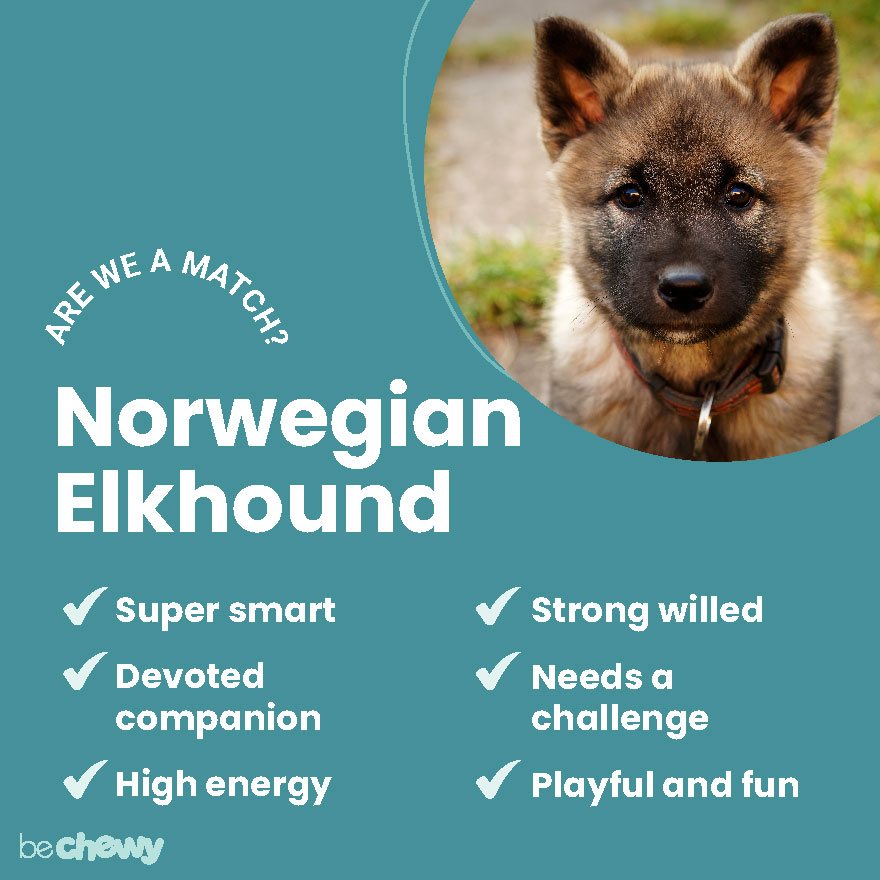
Top Takeaways
To thrive, Norwegian Elkhound dogs need to be mentally and physically challenged. They do best in a go-getter family that is up to the task. Active pet parents who have the time and energy to socialize and train their Elkhound will be rewarded with fun and love from these devoted dogs.
Expert input provided by veterinarian Jo Myers, DVM, a veterinary expert on JustAnswer; Association of Professional Dog Trainers board member Sandy Modell, CPDT-KA, who is owner of Wholistic Hound Academy in Alexandria, Va.; and Holly Lewis, breed ambassador for the Norwegian Elkhound Association of America.
Breed characteristic ratings provided by veterinarian Dr. Sarah J. Wooten, DVM, CVJ, a veterinarian at Sheep Draw Veterinary Hospital in Greeley, Colorado; dog trainer and behavior consultant Irith Bloom, CPDT-KSA, CBCC-KA, CDBC, owner of The Sophisticated Dog, LLC, in Los Angeles; and certified animal behavior consultant Amy Shojai, CABC, in Sherman, Texas.
The health content was medically reviewed by Chewy vets.
Photo credit for “How do I look?” The Spruce Pets

Search for Adoptable Norwegian Elkhounds Near You
Top Norwegian Elkhound Names
These are the top Norwegian Elkhound names as chosen by Chewy's pet parents!
Female Names
- Luna
- Freya
- Willow
- Pepper
- Xena
- Nova
- Ellie
- Bella
- Kona
- Zoey
Male Names
- Loki
- Bear
- Odin
- Koda
- Moose
- Fenrir
- Max
- Jack
- Duke
- Bjorn
Share:
